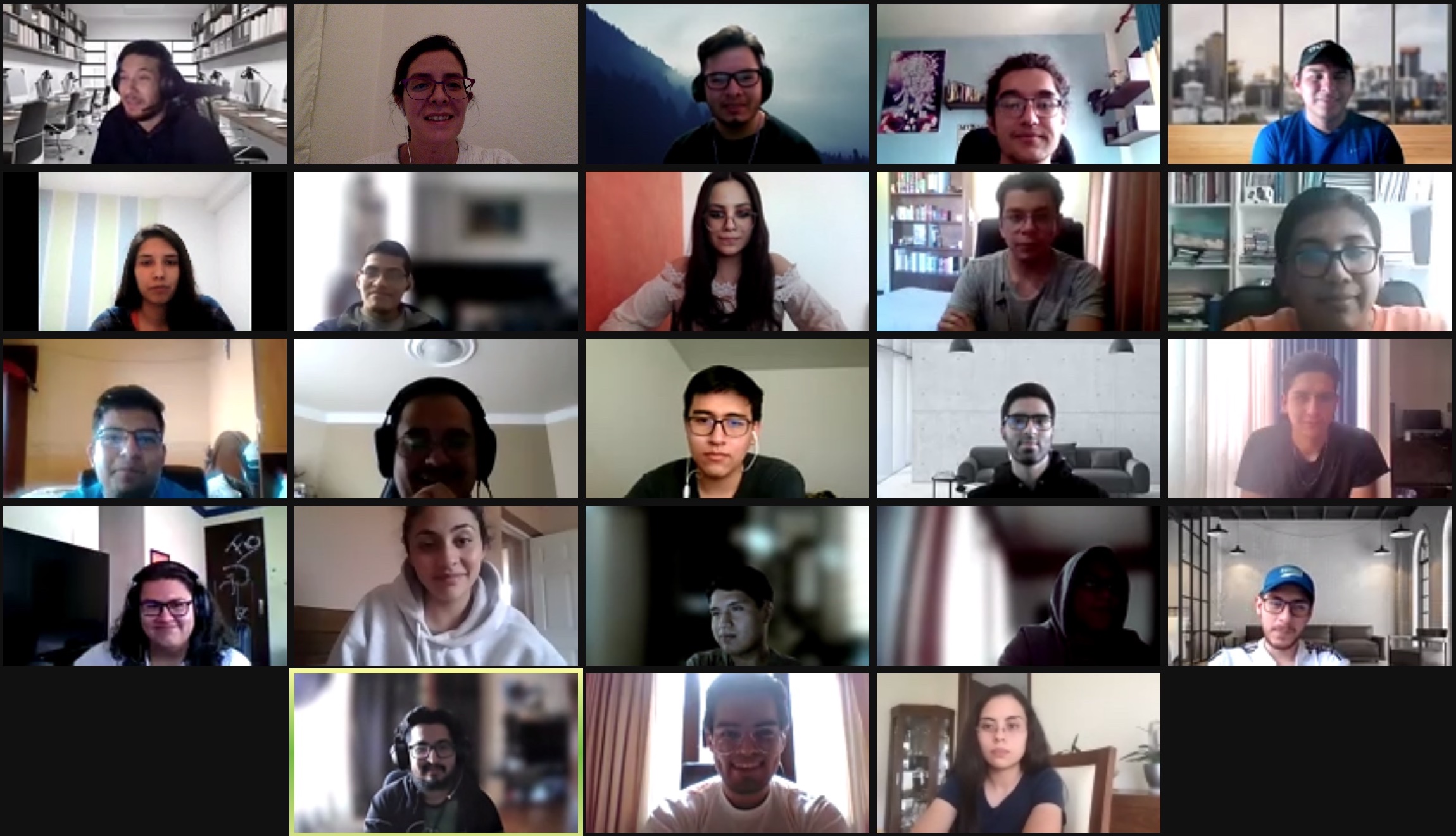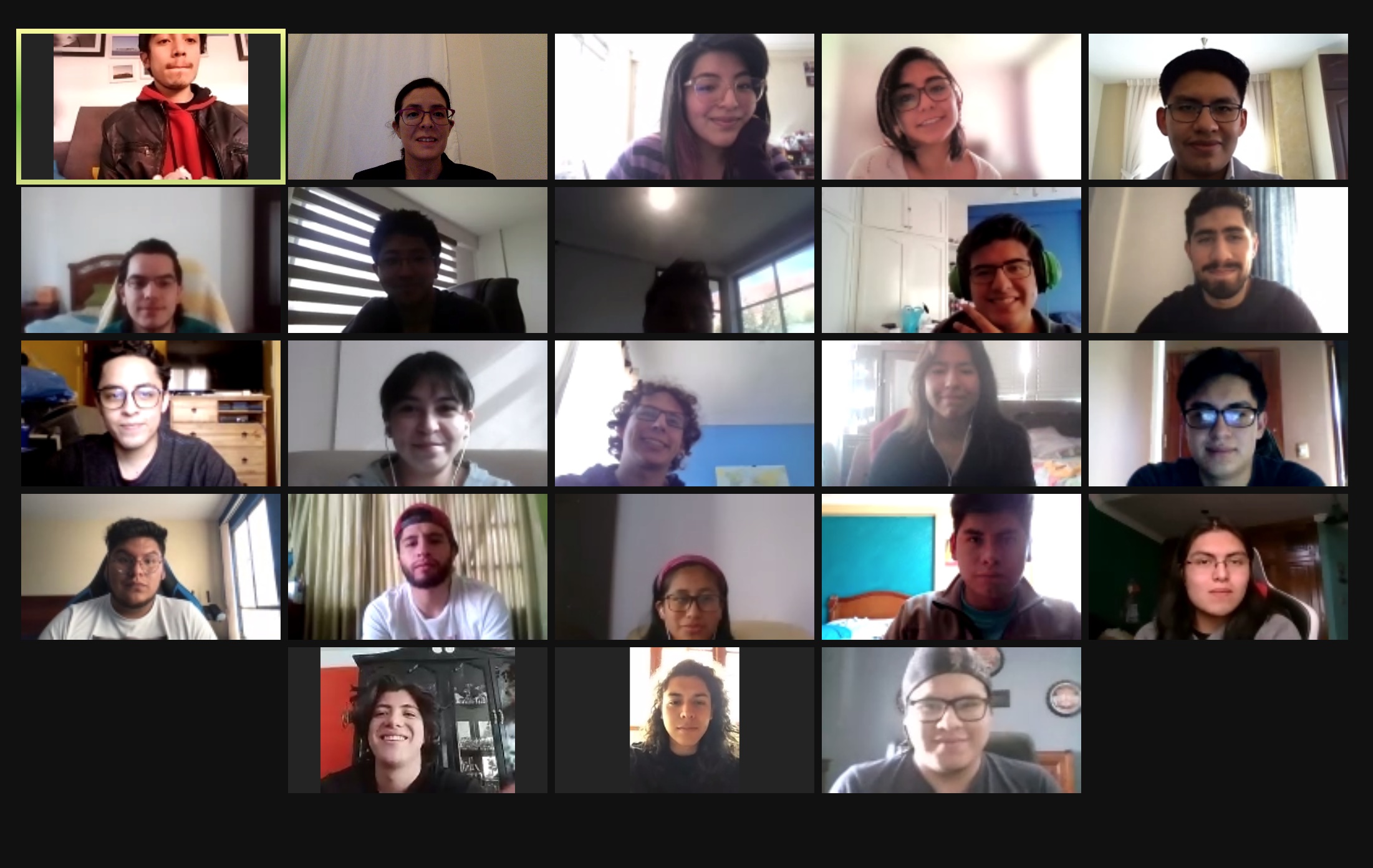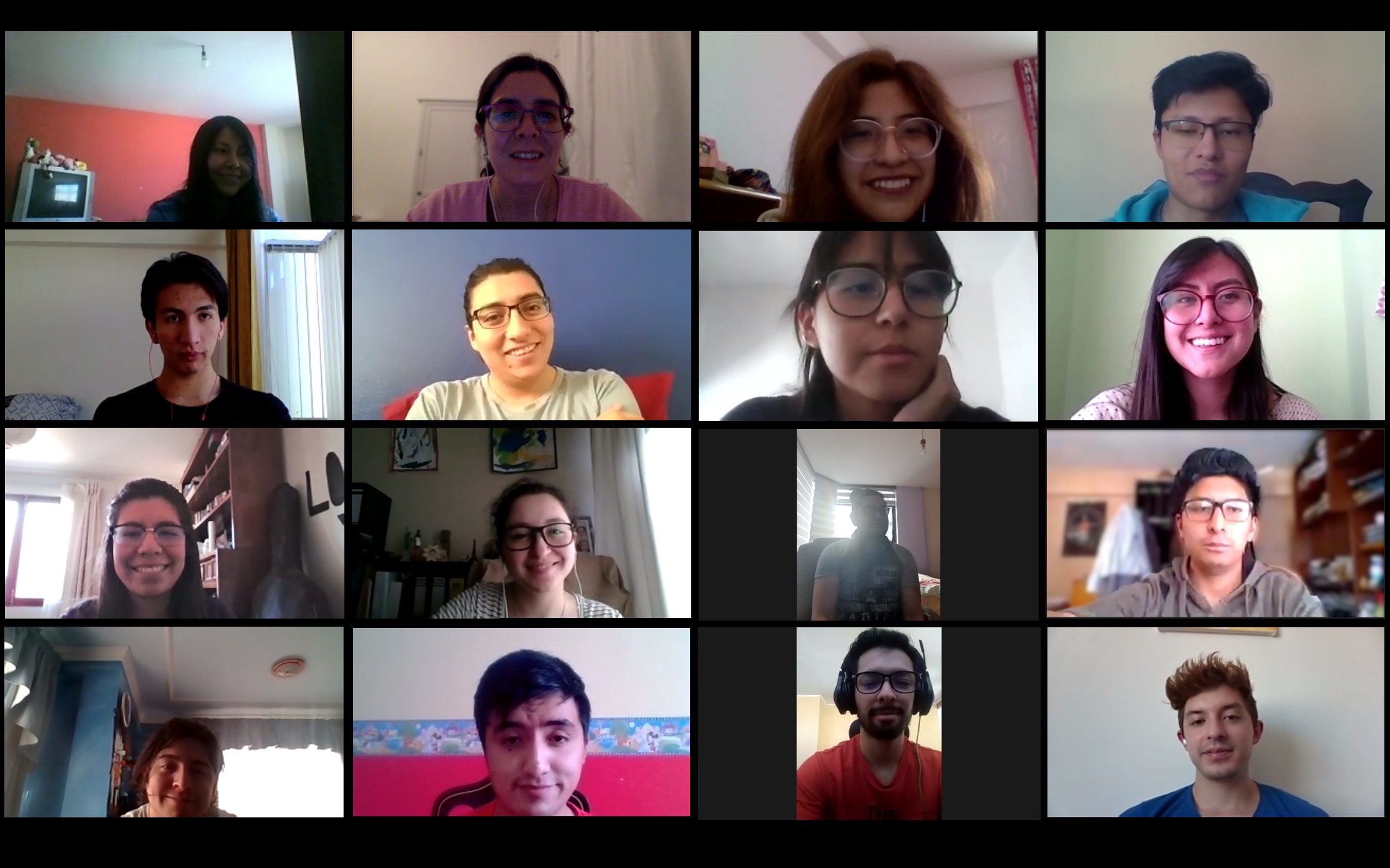.
Selected Topics of Artificial Intelligence II-2021
By Gissel Velarde, September, 2021

From left to right: Vincent Valenzuela, Gissel Velarde, Stefano Sossi, Mathias Nieva, Pablo Rivas, Carla Barrientos, Ricardo Fernandez, Andrea Villarroel, Andrés Coronado, Judá Villalta, Josué Cardozo, Diego Rosazza, Brami Prudencio, Pedro Brañez, Boris Pedraza, Alejandro Bueno, Camila Medina, Tomás Carvajal, Carlos Paredes, Rodrigo Heredia, Juan Diego Garcia, Mateo Lopez, Paola Villaseca. Captura de pantalla por Gissel Velarde 2021.

Artificial Intelligence I-2021
From left to right: Jordi Ugarte, Gissel Velarde, Raisa Silva, Luciana Nunez, Roberto Cuevas, Ignacio del Rio, Ken Hervas, Paolo Illanes, Sergio Laguna, Mauricio Ayllon, Erik Martines, Lizzeth Vasquez, Mauricio Vejarano, Fernanda Martinez, Michael Velarde, Crisitian Paz, Christopher Medina, Nuria Michel, Kevin Pomier, Cesar Illanes, Jorge Lopez, Patrick Bruckner, Camilo Lagrava. Captura de pantalla por Gissel Velarde 2021.
Selected Topics of Artificial Intelligence II-2020
By Gissel Velarde, November 3, 2020

From left to right: Vivian Loza Pinto, Gissel Velarde, Mariana Carlo, Sergio Torrico, Leonardo Blanco, Martin Laguna Jordan, Paola Rivas Mendoza, Emilia Aguilar Rivero, Camila Loayza Banda, Sara Uriarte Popovich, Rodrigo Villarroel, Samuel Huanca, Jürgen Ruegenberg Buezo, Joaquin Viscafe, Andres Mendez, y Mateo Altamirano Vega. Screenshot by Gissel Velarde.
I virtually met my fifteen students in the "Selected Topics in Artificial Intelligence" course that the Bolivian Private University (UPB) offered to computer systems engineering students between September and November 2020.
I combined theory with Problem Based Learning (PBL) which I learned in Denmark and applied as a teaching method in the Medialogy program of Aalborg University during my doctoral years.
To my pleasant surprise, the method that I used to teach was one of the characteristics that students liked the most. PBL is based on learning through developing well-defined projects governed by the students who receive academic supervision, such that in group meetings, students explain the progress of their project, the algorithms and implementations they are working on, and we discuss possible improvements to the algorithms and experiments. In addition, towards the end of the course, we addressed delicate issues such as bias in artificial intelligence systems, ethics, social impact and gender diversity in technological environments.
As I write these lines, the fifteen future computer systems engineers, who worked in groups of three, are preparing for the final evaluation: running experiments, refining their machine learning and deep learning models, reflecting on what they learned from the experiments, and how they might develop a business model based on their project.
I observed the interest, creativity, and, in general, the students' good performance (some outstanding). In such a short course, I could not cover several topics, but I hope that the few topics we saw are a good base for them to initiate themselves in the long and deep path of artificial intelligence.
Some of the participants, allowed me to share their experience to be published:
“The subject of Selected AI Topics seemed to me very interesting for my professional and personal training, since we saw different ways of working with the projects to be presented. I was very informed about everything related to the area of Artificial Intelligence, understanding from the basics to topics a little more complicated, every day I dedicated time to the subject in terms of acquiring new knowledge to carry out a final project and thus having much more interest in this branch that has a lot of information.”
-Mariana Carlo
“I found appropriate the way to learn specific problems that involved the development of a project around deep networks. Although you only focus on your project you could see what similarities or differences there were with other projects.”
-Samuel Huanca
“It was a very enriching class, we rarely had to spend time with women involved in technology during the career and it was interesting to hear about different experiences and perspectives from a recognized person in the field. The methodology during the course was challenging, but near the end I obtained a nice experience and a better introduction to the world of artificial intelligence.”
-Camila Loayza Banda
“I find myself very inspired to have spent a subject with a teacher with such a great background, it is very easy to relate to her because she is from La Paz Bolivia (like me) and she also worked hard to get where she is. She is an example of a woman in engineering which motivates the few girls in the course to see the space we can earn in the branch of science if we work hard and with dedication.”
-Emmi Aguilar Rivero
In my previous post I mentioned What are the best courses to learn Artificial Intelligence? including machine learning and deep learning
See more blog articles..
Tweet #share